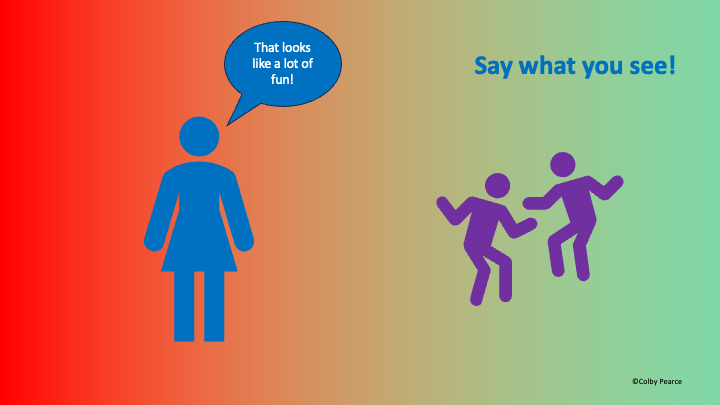
Firstly, regarding our words, young people recovering from a tough start to life benefit from less questions about their experience, and more statements that communicate understanding. Questions are often experienced by them as overly intrusive and reflective of the questioner not understanding them well enough. The young person may also experience frustration at not having the words to express themselves. Rather, their adult caretakers need to say out loud what the young person is thinking, feeling, or what their needs are. I believe it is important to remember this maxim:
If you find yourself going to ask the young person a question and you think you know the answer, should they give one, say the answer. Say what you see.
Say: Tough day at school.
As opposed to: How was your day?
Say: Feeling tired.
As opposed to: How did you sleep?
Say: You’re probably hungry.
As opposed to: What do you need?
Keep it simple. Use ten words or less.
Be aware of the dose. Stick to relatively benign matters, such as their experience of school, the foods they like or dislike, their preferred activities, or their experience of their favourite game. As a relationship develops it is possible to communicate understanding of bigger issues. Professional guidance is valuable regarding these.
In my practice I have found that, when we use our words to communicate understanding of the experience and needs of children and young people, they begin to do so too.
Click here to enter the next page of this module.
To go back, click here.
To access the handbook for this self-paced learning module, click here.
